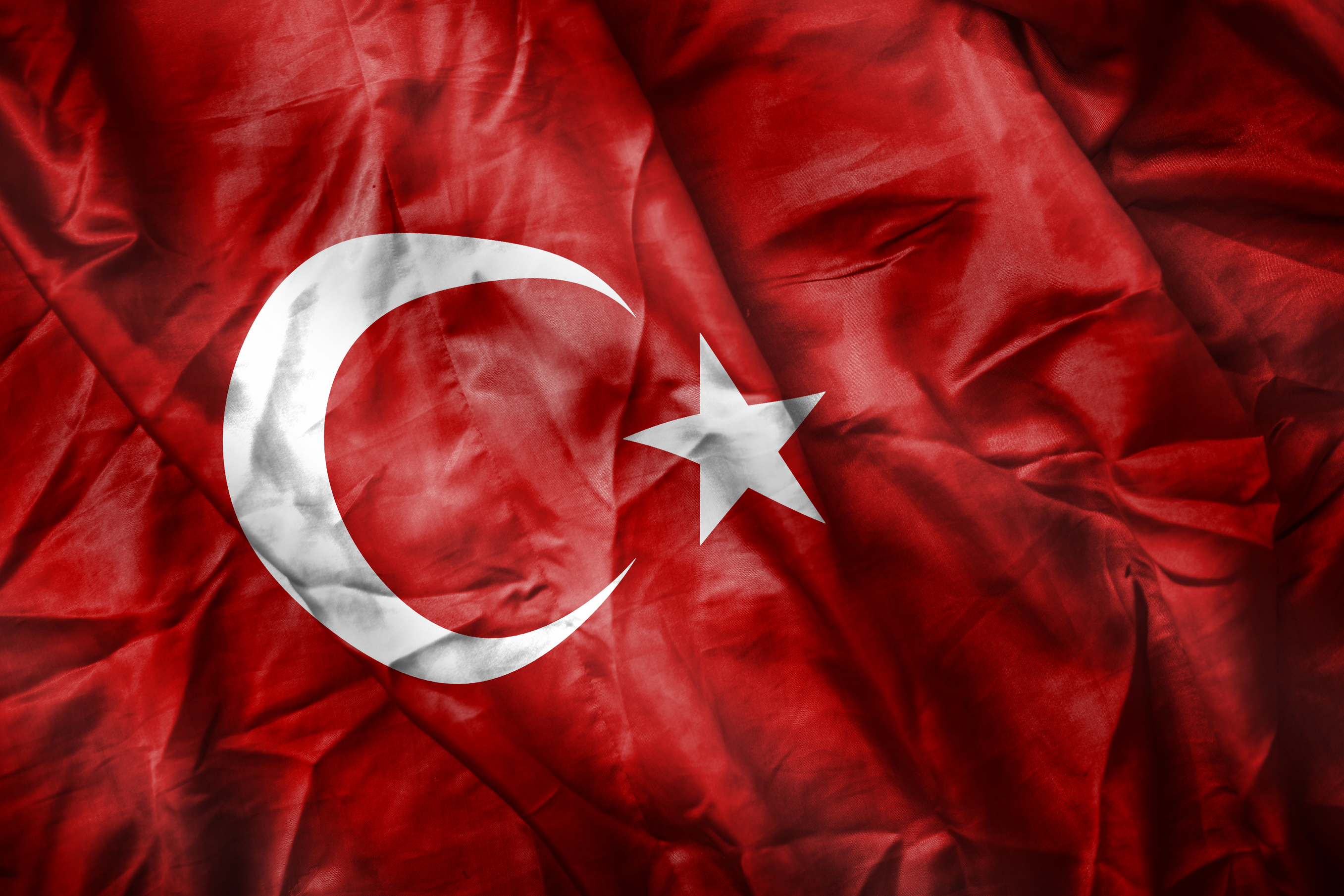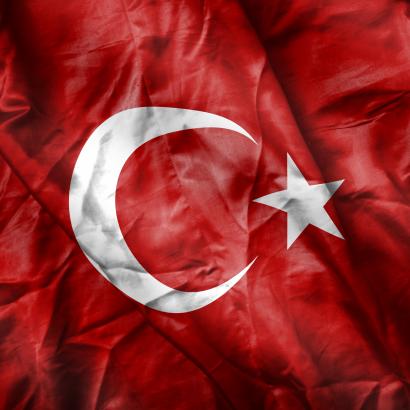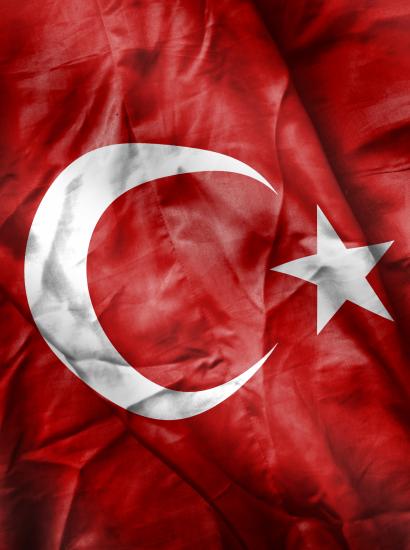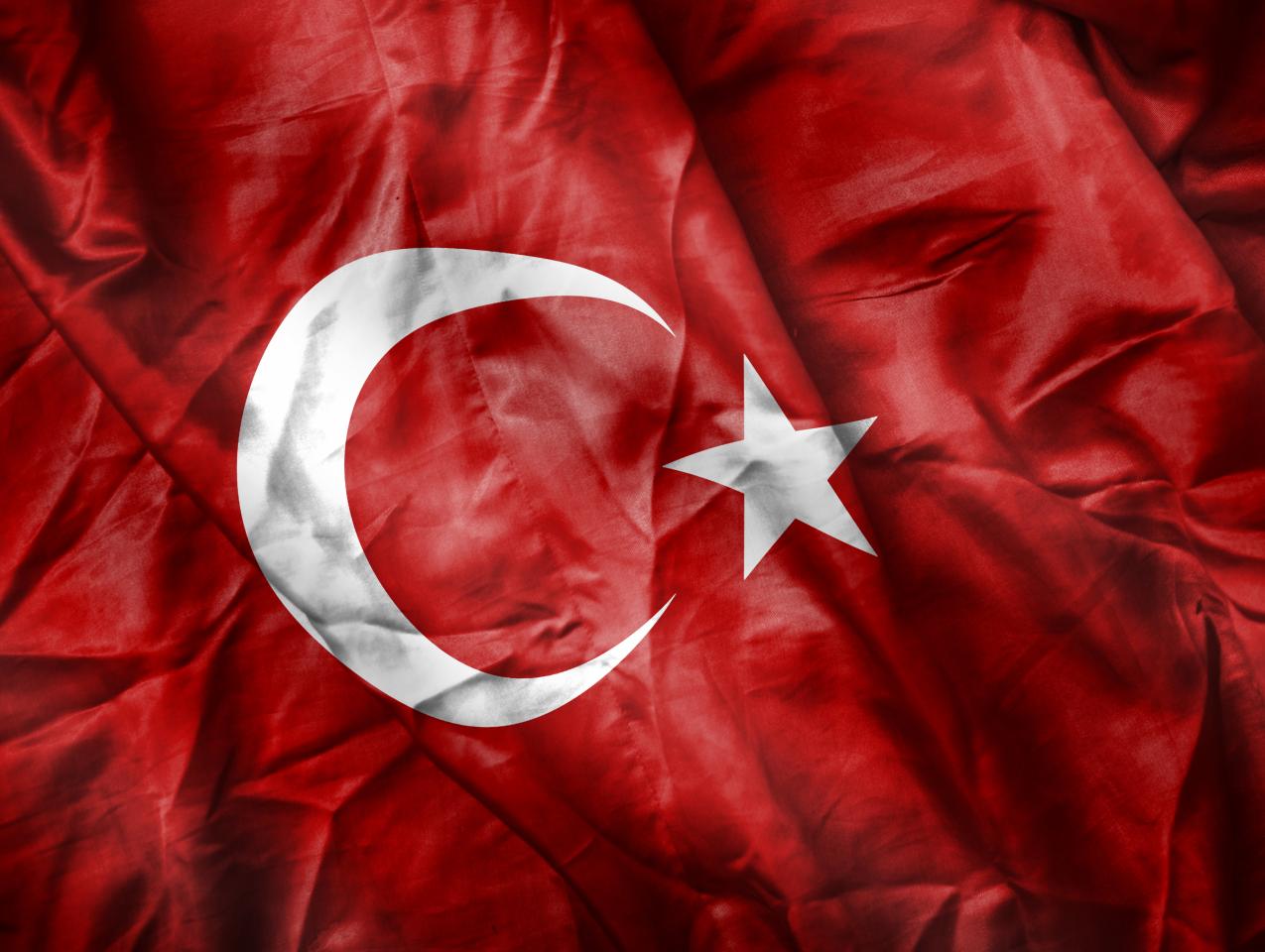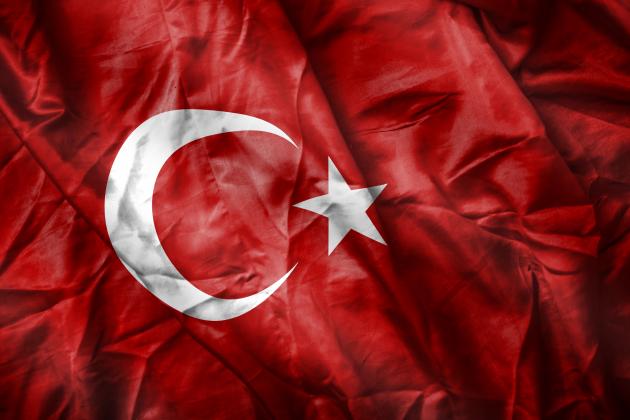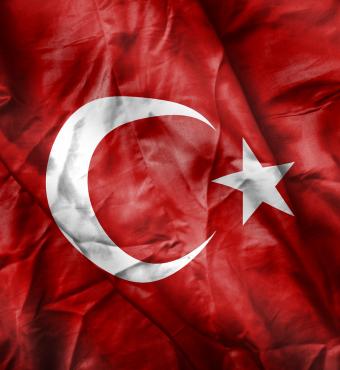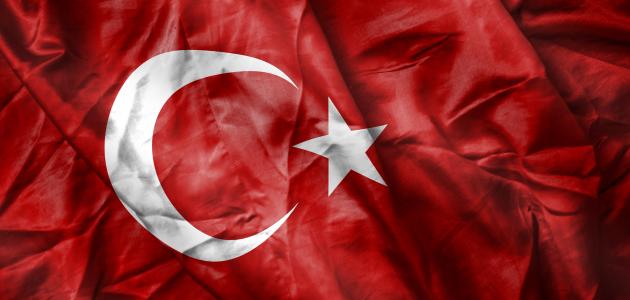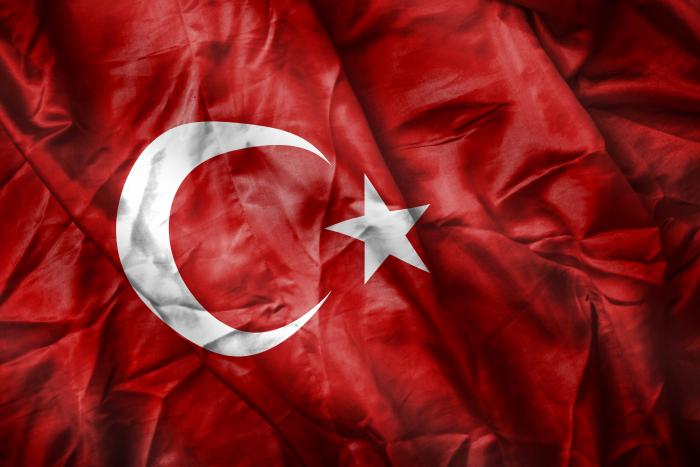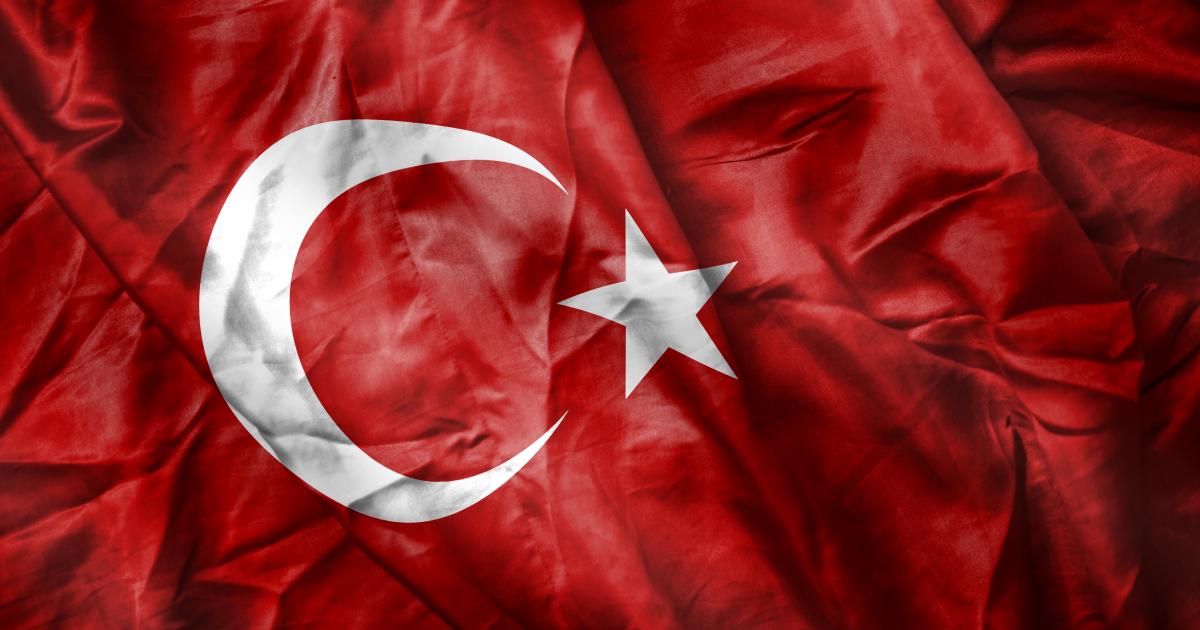- History
- Determining America's Role in the World
Turkiye’s Strategic Orientation
Turkiye’s relationship with the West, and particularly with the United States, has long shaped its modern geopolitical identity. From its post–World War II realignment to its role in NATO and its deep economic and institutional connections with Europe, the country has historically operated within the frameworks of the Western alliance. While pursuing these ties, Turkiye at times distanced itself from the East—from the Middle East to the broader Islamic world—an approach that can be seen as a strategic shortcoming. While in recent years, Turkiye experienced democratic backsliding, authoritarian drift, and strains in diplomacy, these challenges do not change a deeper reality: Turkiye’s political, military, economic, and cultural patterns remain closely intertwined with those of the transatlantic community. This orientation rooted in decades of strategic choices and institutional linkages, has proven durable and is likely to continue influencing its trajectory well into the future.
Turkiye has long viewed the Euro-Atlantic framework as a source of stability, legitimacy, and strategic advantage despite the fluctuating tone of Turkish foreign policy. This alignment is evident not only in treaty commitments and strategic partnerships but also in the country’s institutions, legal structures, education systems, public sentiment, and civil society. Turkiye’s journey toward modernization has consistently followed a Western compass, beginning with the 19th-century reforms and culminating in the republic’s foundation under Mustafa Kemal Ataturk, who explicitly embraced Western models of modern governance and law. However, while the Justice and Development Party’s (AKP) conservative discourse over the last two decades has appealed to certain constituencies, fueled populist narratives and delivered electoral gains, it has also drawn Turkiye into the entanglements of the Middle East.
Pursuing unnecessary expansionist visions—either framed as a revisionist ambition or sectarian “Ummah” agendas — has proven counterproductive. Such approaches risk undermining the strategic achievements and international standing that Turkiye had painstakingly built in the decades before the AKP came to power in 2002. Although EU accession was initially leveraged to win votes and popularity, after consecutive electoral victories the AKP reversed its agenda, adopting a self-serving and adventurous course. The voter credit it received enabled it to test—and ultimately undermine—certain values and the country’s founding principles.
The Post-WWII Strategic Choice
The end of World War II created a bipolar world dominated by the United States and the Soviet Union. In this environment, the Republic of Turkiye made a defining and courageous decision: to align firmly with the Western bloc. This choice was neither automatic nor risk-free but emerged after weighing geographic vulnerability, ideological identity, and long-term aspirations. It became one of the most enduring features of modern Turkish foreign policy.
In 1949, Turkiye joined the Council of Europe, signaling its intent to participate in the new European institutional architecture of democracy, human rights, and the rule of law. Its most decisive step came in 1952, when it formally joined NATO, embedding itself within the transatlantic security alliance that would dominate Cold War geopolitics.
Turkiye’s path to NATO was difficult. Remaining neutral for most of WWII, Turkiye joined the war against Germany and Japan only in 1945, raising doubts about reliability. These doubts were reinforced by bitter memories of Western disappointments such as the Sykes-Picot Agreement of 1916 which carved up Ottoman lands and especially the 1920 Treaty of Sevres, when Britain and France tried to partition Anatolia, which fueled uprisings.
At the same time, centuries of conflict with Russia shaped Ankara’s outlook. Post-1945, Stalin’s demands for bases in the Straits and the return of Kars and Ardahan made the Soviet threat urgent. Only Western guarantees seemed capable of preserving Turkish sovereignty.
Thus, NATO membership was more than a Cold War tactic; it was born from distrust of Russia and skepticism of Western promises. For Turkiye, the alliance was a framework to deter Moscow while binding Western powers to its defense.
Turkiye’s role in the Korean War proved its commitment. Despite economic hardship, it dispatched troops in 1950, suffering heavy losses. This sacrifice convinced skeptical allies—especially Washington—of its reliability and directly secured NATO accession in 1952.The Korean War was both a battlefield and a diplomatic pivot. It showed Ankara’s willingness to fight communism and confirmed Turkiye as NATO’s southeastern sentinel, guarding the Black Sea and Eastern Mediterranean.
Joining NATO was, therefore, more than just about defense; it signaled Turkiye’s ambition to join democratic, industrialized nations. For leaders—especially the military and bureaucracy—it extended Ataturk’s 1920s project of westernization and modernization.
This orientation shaped politics. The 1950 elections, which shifted power from the Republican People’s Party (CHP) to the Democratic Party (DP), coincided with NATO accession. The CHP reflected secular, state-led modernization, while the DP favored liberalization and religious accommodation. This alternation of democratic aspects placed Turkiye within Western norms. Multi-party democracy after 1946, though imperfect, reinforced the trend. Marshall Plan aid, Organization for Economic Cooperation and Development (OECD) membership, and association with the European Economic Community (EEC) in 1963 deepened integration, tying economic growth and political modernization to the West.
Opposition existed: communists, far-leftists, ultra-nationalists, and Islamists decried membership in NATO as a loss of sovereignty or authenticity. Yet these voices were marginal. Governments and the military upheld NATO as vital for both security and modernization.This decision built lasting structures. Despite disputes over Cyprus, coups, or tensions with allies, Turkiye never abandoned its Western orientation. It remains NATO’s only Muslim-majority state and one of few to sustain multi-party democracy for over seven decades.
Turkiye’s post-WWII alignment was a defining moment, shaped by Soviet threats, Western betrayals, and modernization ambitions. The Korean War proved its credibility and secured NATO membership, embedding Turkiye in the transatlantic alliance.
The choice was civilizational, not tactical. It reshaped politics, the economy, and institutions, framing Turkiye as a Western-aligned democracy. Tested by crises, this orientation endures through conviction, integration, and geopolitical logic—not convenience.
The Cold War and Beyond: Turkiye as a NATO Pillar
During the Cold War, Turkiye’s position on NATO’s southeastern flank made it a strategic linchpin. Sharing an 800-kilometer border with the USSR, it served as both a buffer and bastion against communism. The U.S. and NATO invested heavily in its military, especially Incirlik Air Base near my hometown of Adana, which became vital for reconnaissance, nuclear deployment, and dealing with crises from Lebanon in 1958 to the Gulf War in 1991.
Though new U.S. bases in Gulf states—Qatar, Bahrain, Kuwait, the UAE, and Oman—later reduced Incirlik’s centrality, Turkiye’s loyalty demanded managing pressures: rivalry with Greece, Soviet threats, and internal struggles between secularism and Islamism. Even after coups in 1960, 1971, and 1980 strained democracy, it stayed committed to NATO.
Beyond defense, the Marshall Plan aid, OECD membership, and Western-led projects tied Turkiye to modernization. After the Soviet collapse, NATO expanded missions beyond deterrence. Turkiye embraced this shift, supporting eastward enlargement and playing military and diplomatic roles in Bosnia and Kosovo.
In the 2000s, Turkiye assumed command in NATO’s International Security Assistance Force (ISAF) operations in Afghanistan and supported operations in Iraq, offering logistics while opposing parts of the war. Turkish officers gained senior NATO posts, and the country hosted radar and missile defense systems.
Despite recent frictions over Syria, arms deals, and governance, Turkiye remains essential—hosting critical assets, contributing to NATO Response Force (NRF) missions, and anchoring the alliance on its southeastern flank.
Turkiye’s strategic geography and military heft make it indispensable to NATO’s future. Straddling Europe and Asia, controlling the Bosporus and Dardanelles, Turkiye serves as NATO’s southeastern sentinel—crucial for deterrence from Russia to the Middle East. Its support for Mediterranean migration missions and its capacity for crisis response and stabilization reinforce the alliance’s flexibility and reach.
The 2025 NATO Summit in The Hague reaffirmed collective defense under Article 5 and endorsed a bold new defense spending target of 5% of GDP by 2035 (3.5% for core defense, 1.5% for broader security needs), with direct support to Ukraine counted toward this goal. Turkiye—already exceeding the NATO benchmark and contributing the alliance’s second-largest army—has embraced the new spending framework.
In addition to hardware commitments, Turkiye plays key roles in migration management, Ukraine security cooperation, and post-war stability. As both a host and participant in NATO’s migration mission efforts, Turkiye helps buffer refugee flows into Europe. It has been a vocal advocate for Ukraine’s defense, and its support is formally recognized in summit declarations that tie Ukraine’s security to NATO’s security.
Lastly NATO’s role and by extension Turkiye’s place within it remain central but demand transformation. The alliance that once defined itself through Cold War deterrence and later through interventions in the war on terror—notably in Iraq and Afghanistan—now faces a new generation of challenges. Cybersecurity threats, large-scale migration flows, hybrid warfare, and complex peacekeeping missions have replaced traditional battlefronts as the most pressing tests of collective security. As NATO transitions into this modern era, Turkiye’s strategic geography, military capacity, and diplomatic leverage remain indispensable. Yet to remain credible and effective, Turkiye must also recalibrate—modernizing its own defense posture, embracing cyber and technological readiness, and aligning its policies with the evolving mission of the alliance.
Anchored in Europe: Economic-Institutional Integration and Contemporary Issues in Foreign Policy
Parallel to its military role in NATO, Turkiye pursued political and economic integration with Europe. Its application to the European Economic Community (EEC) in 1959, followed by the Ankara Agreement in 1963, formalized this relationship, culminating in the 1995 Customs Union that allowed the free movement of industrial goods.
The aspiration for full European Union (EU) membership drove Turkiye’s reform trajectory. A formal application in 1987, candidate recognition at the 1999 Helsinki Summit, and the launch of negotiations in 2005 all signaled this ambition. Though talks have since stalled—due to domestic political shifts and the reluctance of Europe to expand its membership —the process reshaped Turkiye’s institutions. It aligned regulations with EU law in trade, consumer rights, competition, and environmental standards, while benefiting from pre-accession aid and educational exchanges like Erasmus+.
Despite setbacks and rising authoritarianism, surveys by the World Values Survey (WVS), European Values Study (EVS), Metropoll, and Konda Research show enduring support for democracy and EU values across society, not only among urban residents but also conservative and religious communities.[1] Civic activism remains vibrant: bar associations in Istanbul, Ankara, and Izmir defend the people’s rights, professional chambers publish critical policy reports, and parts of the judiciary still uphold the rule of law despite politicization since the 2016 coup attempt. Still, authoritarian drift has weakened institutions, concentrating decision-making in the presidential palace.
This dual reality defines Turkiye today: public commitment to democracy and European norms persists, even as political practice diverges from this track. Authoritarian rhetoric may escalate, but public opinion consistently favors checks and balances, judicial independence, and a stronger parliament. The democratic imagination, rooted since 1923 in European legal codes and parliamentary traditions, endures.
Against this backdrop, Turkiye’s foreign policy is often presented as multidimensional and multilateral, yet it continues to face significant shortcomings and structural obstacles. A CHP presidency would mark a sharp departure from the AKP’s adventurism, instead pursuing a balanced and sovereign strategy rooted in democratic values, institutional trust, and predictable cooperation with both Western allies and non-Western partners. Turkiye is no longer the state it once was; it has moved beyond the status of a constrained player, repositioning itself with defined regional aspirations.
This recalibration resonates domestically. After years of stalled EU accession and perceived double standards, Turkish citizens demand a foreign policy of balance rather than subordination. Under a future CHP presidency, the new administration would definitely restore predictability with the West through renewed dialogue, institutional trust, and rule-based cooperation. Yet this requires both sides to abandon superiority complexes and rebuild mutual respect.
For Turkiye, democratic renewal is a prerequisite. Without restoring the rule of law and institutional independence, multilateral ambitions risk becoming transactional. For the West, credibility must be rebuilt by moving beyond symbolic traumas—from U.S. President Lyndon Johnson’s 1964 letter on Cyprus to President Donald Trump’s 2019 letter to President Erdogan—which left deep scars in Turkish memory.
Ultimately, Turkiye’s regional aspirations—energy corridors, mediation diplomacy, and influence in the Turkic world—will not always align with NATO or EU priorities. A future CHP presidency would likely pursue a “balanced and sovereign” policy: maintaining NATO ties, engaging the EU, but asserting independent regional goals. Such a stance need not undermine the West; rather, it can strengthen cooperation if grounded in equality and mutual respect.
For this to succeed, NATO must evolve from a burden to a partnership, while Ankara consolidates democracy at home. Only then can the alliance unlock the full potential of Turkiye’s strategic geography and capabilities—delivering security for the West and legitimacy for Turkiye.
Turkiye and the U.S.: A Contentious Partnership
The relationship between Turkiye and the United States has been marked by strategic partnership and persistent tensions, shaped by Cold War alignments, post-9/11 security imperatives, and divergent regional priorities. Despite recurrent disagreements, the enduring partnership between the two NATO allies reflects a complex interdependence that has withstood dramatic shifts in both domestic and international politics. Far from being a transactional alliance, the U.S.-Turkiye relationship is rooted in overlapping security concerns, military cooperation, and economic interconnectivity—factors that continue to bind the two countries even amid deepening policy disagreements.
The post-Cold War era witnessed a shift in U.S.-Turkiye relations from a primarily military alliance to a broader and more complicated partnership, influenced by regional developments such as the Gulf Wars, the Arab Spring, and the Syrian Civil War. Disputes have arisen over Washington’s support for Kurdish militias in Syria, Ankara’s rapprochement with Russia and purchase of the S-400 missile defense system, and diverging views on Iran, Israel, and broader Middle East policy. These points of conflict have strained trust and triggered punitive measures—including Turkiye’s removal from the F-35 fighter jet program—but they have not led to a rupture. Both sides have opted to set aside their disagreements and limit their interactions, maintaining the partnership despite ongoing tensions.
Economically, the relationship remains irreplaceable. In 2023, the bilateral trade volume exceeded $32 billion, with Turkish exports to the U.S. totaling $14.8 billion and imports from the U.S. reaching $17.3 billion. Key sectors include machinery, automotive components, textiles, defense equipment, and chemicals, reflecting a diverse and dynamic economic exchange. Moreover, U.S. foreign direct investment (FDI) in Turkiye—particularly in energy, pharmaceuticals, digital technologies, and consumer goods—has remained steady despite political tensions.
Defense procurement remains a key pillar of U.S.-Turkiye cooperation. Beyond acquiring American aircraft, tanks, and missiles, Turkiye has co-produced military hardware and engaged in technology-sharing with U.S. firms. Despite the F-35 dispute, Ankara continues pragmatic talks to modernize its F-16 fleet. While the F-35 has demonstrated its effectiveness in operations such as recent strikes on Iran, Turkey risks being left with neither side of the equation — its Russian-made S-400s sit largely idle, and meaningful access to the F-35 program seems to be blocked for now. Importantly, integrating the S-400 where F-35s operate creates significant security risks—introducing potential vulnerabilities into NATO’s most advanced air systems. The decision to acquire the S-400 has caused billions in losses, Turkiye’s removal from the F-35 program, and the replacement of Turkish manufacturers with alternatives.
Thus, the Turkiye–U.S. relationship is best understood as a strategic partnership defined by durable interests rather than ideological alignment. It is not without serious challenges—particularly regarding democratic norms, freedom of expression, and divergent regional policies—but it is far from obsolete. If managed carefully, the relationship could evolve into a more balanced, multipolar alliance grounded in mutual respect and pragmatic cooperation. For Turkiye, maintaining and deepening ties with the U.S. is not about aligning blindly with Western power, but about affirming its role as a sovereign actor within the Western alliance, one capable of shaping regional dynamics while upholding democratic values at home.
Opposition Renewal: CHP with Ozgur Ozel
In today’s world, where communication technologies are widely accessible, domestic politics are closely intertwined with foreign policy. Therefore, the following sections examine the CHP’s transformation and the AKP’s crackdown on both the party and one of its leading figures Ekrem Imamoglu--elected Mayor of Istanbul in 2019 but arrested in 2025 to prevent him from challenging Erdogan in the elections--are directly linked to Turkiye’s foreign policy orientation and its forthcoming strategic choices. The way Turkiye manages internal political pluralism and opposition figures inevitably shapes its credibility and reliability in the eyes of Western partners. Thus, the developments surrounding the CHP and Imamoglu are not merely isolated domestic issues; they are of critical importance to Turkiye’s long-standing political, social, economic, and strategic trajectory, which has historically been oriented toward the West. Ignoring these domestic dynamics risks undermining Turkiye’s ability to maintain its Western alliances and strategic influence in a rapidly shifting geopolitical environment.
The rise of Ozgur Ozel as leader of the CHP in late 2023 marked a pivotal moment in mainstreaming pro-democracy forces within Turkish politics. Unlike his predecessors, who often struggled to expand the party’s appeal beyond its traditional secularist base, Ozel has adopted a more inclusive and conciliatory tone, actively seeking to build bridges across ideological divides. Under his leadership, the CHP has made significant efforts to reconnect with working-class voters, women, conservatives, and younger citizens—particularly through grassroots outreach and an enhanced social media presence. This rebranding has shifted the party closer to the political center, making it more competitive in both urban and Anatolian constituencies.
Analysts note that under Ozel’s tenure, the CHP is evolving from a party of opposition into a broad-based political movement capable of articulating a national vision rooted in democratic norms, institutional reform, and modernist alignment—without abandoning Turkiye’s historical, economic, and cultural - spanning Asia, Africa, the Greater Middle East, the Caucasus, and Central Asia. His leadership has not only energized the party’s base but also positioned it as a viable governing alternative in the post-Erdogan era.
This strategic shift was a key factor contributing to the party’s victory in the 2024 local elections. The CHP rose as Turkiye’s foremost political force, capturing 35 municipalities — among them the country’s largest cities — and receiving 37.8% of the national vote. Notably out of Turkiye’s 86 million people, 54 million — roughly 62% of the population — live in municipalities governed by the CHP, and these cities account for about three-quarters of the country’s GDP. This was the party’s strongest performance since 1977. But rather than accept defeat at the ballot box, the ruling AKP responded with a judicial onslaught.
While Turkiye’s current political leadership may sometimes appear at odds with the West, Turkish society remains firmly rooted in the values that underpin liberal democracies. The resilience of public support for democratic governance, civil liberties, and Western integration should not be underestimated. It is this societal bedrock that offers the most compelling evidence of Turkiye’s enduring Western orientation—and the most promising foundation for a democratic renewal.
The AKP, in contrast, has repeatedly weaponized anti-Western and anti-American rhetoric to consolidate its domestic base. Through its network of satellite media outlets, the AKP manufactures artificial narratives and inflames public sentiment, often targeting the USA, the EU, Western and Middle-Eastern leaders. At political rallies and party congresses, Western heads of states have been targeted including former German Chancellor Angela Merkel, French President Emmanuel Macron, President of Egypt Abdel Fattah el-Sisi, former US Presidents Barack Obama, Joe Biden and Donald J. Trump, and successive U.S. administrations, with inflammatory accusations broadcast as part of routine political messaging.
Such tactics reveal not only deep mistrust but also a fundamental lack of commitment to democratic practice. By flipping between moments of cooperation and episodes of hostility, the AKP exposes its true colors: treating democracy as a tool of convenience rather than a guiding principle. Anti-Western posturing has often served as a diversion from domestic challenges—economic downturns, corruption scandals, or authoritarian overreach—allowing the AKP to score cheap political points at the expense of long-term diplomatic credibility.
Conversely, CHP would offer a more balanced, dependable, and non-polarizing approach to foreign relations. Rather than exploiting populist sentiment, the CHP emphasizes institutional trust, dialogue, and rule-based engagement with allies. A CHP presidency would not resort to bashing any foreign leader for electoral gain but would instead prioritize rebuilding predictability, respect, and genuine cooperation in Turkiye’s relations with both Western and non-Western partners.
Istanbul and the Imamoglu Moment
Istanbul, once the capital of three great empires—the Roman, Byzantine, and Ottoman—is today the largest city in Europe, surpassing cities like Rome, Paris, London, Berlin, and Barcelona with a vibrant population exceeding 16 million. Commanding a budget that surpasses 13 cabinet-level ministries, Istanbul’s municipality wields economic power commensurate with the nearly half of Turkiye’s GDP generated within its borders. Its sheer size and influence create fertile ground for rent-seeking, clientelism, nepotism, and populism, allowing it to shape the national political landscape.
However, the 2019 local elections marked a turning point, proving that the ruling party, AKP, could be defeated. Years of clientelism, malpractice, favoritism, nepotism, and Islamic elitism had left a bitter taste, particularly among Istanbulites. Imamoglu,a district mayor, won the 2019 local elections through innovative methods, strategic outreach, and an inclusive approach that embraced all citizens without bias or hesitation.
Although Imamoglu’s victory was initially narrow—by just 13,000 votes—the ruling party’s authoritarian reflex refused to accept the result and forced a repeat election. The rerun, far from diminishing his support, resulted in an overwhelming victory margin of over 800,000 votes, signaling not only Imamoglu’s popularity but also the electorate’s firm rejection of perceived injustice. By the 2024 elections, Imamoglu had extended this lead to nearly 1,000,000 votes, cementing his role as a serious challenger to the ruling establishment.
Imamoglu demonstrated a deep understanding of the struggles faced by ordinary citizens and responded with creative, tangible solutions grounded in social democratic principles centered on democratic people-ism. Unlike authoritarian populism, which thrives on division, inequality, polarization, and the elevation of a sole leader, Ekrem Imamoglu’s doctrine is rooted in inclusion, fairness, redistribution, and respect.
Following a series of judicial harassment and bureaucratic roadblocks, Imamoglu was repeatedly obstructed from delivering basic and necessary services to Istanbul. Initiatives such as a new metro line—financed independently by the municipality through funds abroad —and the hiring of additional firefighters, critical for responding to natural disasters like earthquakes, floods, or fires, were systematically blocked by the AKP.
As Imamoglu’s popularity surged and he emerged as a dominant figure shaping Turkiye’s political narrative, the regime moved to neutralize him. The detention of Istanbul’s mayor on March 19, 2025—who remains in prison today—marked a profound turning point in Turkiye’s democratic journey. Widely regarded as the most viable opposition leader and a leading contender for the 2028 presidential election, Imamoglu had long symbolized hopes for democratic transition and generational renewal in Turkish politics. His arrest was not an isolated incident but the climax of years of legal attacks, political obstruction, and institutional manipulation—reflecting the deepening authoritarianism in today’s Turkiye.
Yet the reaction from Turkish society revealed something equally significant: the resilience and enduring strength of democratic impulses among the people.
Imamoglu’s legal challenges began shortly after his decisive victory in the 2019 Istanbul mayoral election, which he initially won in March but was forced to rerun in June following the annulment of the original results.
The response was predictably hostile. Imamoglu faced multiple investigations—some so trivial they bordered on the absurd. The most notable was a case accusing him of “insulting public officials” after he publicly criticized the annulment decision, highlighting the alarming erosion of judicial independence in Turkiye.
The arrest of Ekrem Imamoglu on March 19, 2025—executed in a pre-dawn raid and carried out without formal indictments—laid bare the fragile state of democracy and justice in Turkiye. While trials can and should proceed without imprisoning political figures, this blatant tactic of detaining opposition leaders reflects a troubling return to the coup-era authoritarian playbook.
The arrest warrant was issued, and Imamoglu was taken into custody in a highly choreographed operation, unmistakably staged as political theatre. Within hours, Istanbul and other major cities erupted in spontaneous protests. Hundreds of thousands poured into the streets, defying police barricades and restrictions on public assembly. These demonstrations went beyond Imamoglu’s arrest and became an outcry against the broader erosion of electoral integrity and shrinking democratic space in the country.
Public opinion polls taken shortly after the detention revealed an astonishing breadth of support for Imamoglu. According to a Konda poll in late March 2025, 71% of respondents—including 43% of self-identified AK Party voters—believed that the arrest was politically motivated.[2] More than 60% agreed that "Imamoglu represents the democratic future of Turkiye," and nearly half of all respondents said they would support him if he were to run for president. This level of cross-cutting appeal is rare in Turkish politics, where ideological and partisan lines are often deeply entrenched.
Imamoglu’s popularity derives in part from his ability to redefine political discourse. Unlike the polarizing rhetoric that has long characterized Turkish elections, he emphasizes unity, service, and local problem-solving. His record as Istanbul mayor includes major investments in public transportation, green infrastructure, and social services. He has also expanded transparency measures and resisted political pressure from the central government, even when faced with budgetary blockades and administrative interference.
For many, Imamoglu’s personal ordeal became a stand-in for Turkiye’s broader democratic struggle. His confinement was interpreted as a badge of honor, transforming him from a successful mayor into a national symbol of resistance. His journey and fate—from imprisonment alongside his legal team and family—resonated as a powerful message of both reconciliation and defiance, urging Turkish citizens to “stand tall for democracy, without bitterness or fear.”
The broader implications for decision-makers were immediate and profound. Although the ruling AKP has long succeeded in outmaneuvering political opponents through a combination of patronage, media control, and institutional engineering, the Imamoglu episode exposed the limits of this strategy. Rather than eliminating a rival, the arrest galvanized opposition forces and reinvigorated civil society. Indeed, the event produced a rare moment of unity among Turkiye’s fragmented opposition parties, some of which had previously disagreed over tactics and leadership.
In this sense, Imamoglu represents more than just an electoral challenge to President Erdogan—he embodies a civilizational alternative. He offers a vision of Turkish identity that is pro-democratic and Western-oriented, yet deeply rooted in national pride, religious values, and respect for ethnic and religious diversity. Committed to rule-based governance, he bridges tradition with modern pluralism. Should legal obstacles be removed, his potential 2028 candidacy would redefine the political landscape—not simply a contest of personalities, but a clash of paradigms: inclusive democracy versus authoritarian populism, youth versus entrenched power, change versus the status quo, the ordinary citizen versus the establishment.
The public’s reaction to Imamoglu’s detention revealed a vital truth about Turkish society: while institutions may weaken, democratic reflexes endure. Citizens who marched, chanted, spoke out, and organized solidarity campaigns demonstrated that Turkiye’s democratic identity is rooted not only in political institutions but also deeply embedded in popular consciousness. The mass mobilizations in the wake of Imamoglu’s detention reaffirmed a societal commitment to fairness, accountability, and political participation. That is why CHP chairperson Ozgur Ozel, recognizing this societal need, has been orchestrating two rallies each week—one in an inner region of Turkiye and the other in a district of Istanbul.
Authoritarian Consolidation and Local Crackdowns
The recent wave of imprisonments starting in early July—targeting mayors of major municipalities such as Adana, Antalya, and Izmir—signals that this is far from an isolated incident. Rather, it reflects a sustained assault on local democratic governance. Even before this new crackdown, March 19th had already marked a decisive turning point in Turkiye’s political landscape—a watershed moment in the systematic erosion of democratic institutions. What unfolded was not simply a political crackdown; it was an outright declaration of war on the very idea of democratic opposition in Turkiye.
15 opposition mayors all from the main opposition party, are now behind bars, with over 200 family members, friends, and associates caught in this collective punishment mechanism. Istanbul has become the epicenter of the crackdown. Out of Istanbul’s 39 districts, the CHP won 26 in the 2024 local elections — a historic high that secured 72 percent of the city’s municipalities. Yet in the face of maximum crackdown and defiance of democratic norms, 11 of those CHP district mayors — representing roughly 40 percent of the party’s mayors in Istanbul — have been placed behind bars. At the same time, the AKP has deployed every tool at its disposal to engineer defections within the main opposition, luring city council members and even mayors into its ranks—resulting in several Istanbul districts and major cities falling under AKP control.
To manipulate daily debate and shape public discourse, the AKP leverages its control over the media to portray the opposition as weak, fragmented, and disorganized. The culmination of this strategy is multifold: first, a steady pattern of weekly or biweekly crackdowns targeting municipalities in Istanbul and across inner Turkiye; second, a campaign to delegitimize the main opposition party’s convention through politically driven court cases; third, the installation of a sidelined crony within the opposition ranks—someone who switched allegiance to the regime in pursuit of renewed influence; and fourth, targeting opposition aligned members of businesses and civil society organizations.
This strategy culminates in yet another fold: systematically pressuring, transferring, and enticing opposition figures—from mayors to party representatives—to abandon the opposition and align with the ruling bloc. These maneuvers, reinforced by a weaponized judiciary and punctuated by high-profile raids such as the storming of the Istanbul headquarters with several thousand police officers on September 8, have come at the direct expense of Turkiye’s democratic values, while serving to intimidate the opposition and its supporters.
What began as a shift toward executive centralization under the 2017 presidential system has since metastasized into full authoritarianism. The erosion of institutional independence reaches far beyond the weakening of parliament. The AKP, in power since 2002, routinely ignores rulings from Turkiye’s Constitutional Court and even defies decisions of the European Court of Human Rights (ECHR). Opposition politicians—including those protected by parliamentary immunity—face relentless legal harassment and the constant threat of prosecution. For instance, 61 CHP members of parliament have come under increasing pressure, with threats looming over their immunity. These tactics are part of a broader strategy to suppress dissent while maintaining a veneer of legality.
The use of “secret witnesses,” often without any formal indictments, further undermines the legitimacy of these proceedings. Meanwhile, Imamoglu’s family has been targeted: their businesses seized, bank accounts frozen, and even his social media presence—including his Twitter/X account—suspended at the request of Turkish authorities.
The objective is clear: to remove credible, competent, and popular opposition figures from the political arena. In this environment, Turkiye can no longer be considered a democratic state—a label political scientists reserve even for flawed democracies where opposition parties can still operate. Instead, the country is sliding toward outright autocracy, where elections are permitted only insofar as they reinforce the existing regime.
The ruling party’s renewed peace process with the Kurdistan Workers’ Party (PKK)—an armed Kurdish militant organization designated as a terrorist group by Turkiye, the United States, and the European Union—is currently at the forefront of Turkish politics. As noted above, hundreds of CHP members at all levels have been penalized simply for engaging in politics, while Kurds aligned with the Democracy and Equality Party (DEM)—a pro-Kurdish, left-wing party with ties to the PKK and once framed as a national security threat—are now being drawn into the ruling coalition through a combination of carrots and sticks. With millions of Kurdish voters—traditionally accounting for around 10% of the electorate—the AKP appears to have seen an opportunity to inject fresh support into its weakening ranks.
However, a lasting peace cannot take root while simultaneously eliminating your main rival, punishing, marginalizing, and excluding the main opposition party—along with several others—that together represent more than half of the population. This contradiction is further underscored by the imprisonment of a Kurdish district mayor from the CHP and representatives of the Kurdish political party —alongside an elected MP—whose release has been explicitly demanded by the ECHR, rulings the Turkish government has thus far ignored. Without reaching out to broader segments of society with diverse backgrounds, the peace process will be inherently fragile, producing at best limited and inefficient results.
Conclusion: A Democratic Turkiye as a Strategic Necessity
Turkiye’s relationship with the West is far more than a temporary alliance of convenience. It is a deeply rooted strategic, institutional, and societal orientation forged over decades of shared history, values, and mutual interests. From its decisive Cold War alignment and pivotal role in NATO to its enduring aspiration for European integration and the vibrancy of its civil society, Turkiye has demonstrated a structural commitment to the Western order. While recent years have seen tensions manifest through democratic backsliding, geopolitical divergences, and widespread public disillusionment, these challenges should be viewed as serious but not definitive ruptures in a long-standing trajectory of Euro-Atlantic engagement.
At its core, Turkiye’s Euro-Atlantic orientation reflects not only diplomacy or military necessity but the aspirations of its people, the architecture of its institutions, and the strategic logic of its geography. The democratic reflexes witnessed during moments such as the widespread protests in support of main opposition mayors affirm that values like pluralism, accountability, and rule-based governance continue to resonate powerfully across generations and political divides. Moreover, Turkiye’s nuanced stance on global challenges—from the Ukraine conflict to the evolving NATO mission—reinforces its indispensable role within the transatlantic alliance.
However, true democratization and stability cannot be achieved without domestic unity, the rule of law, an end to obstruction of justice, and an inclusive political framework—one that addresses historic economic, political, and cultural injustices while guaranteeing equal citizenship and full democratic participation for all. The ongoing democratic erosion under the AKP’s rule—marked by intolerance toward diversity and political competition, nepotism, and shrinking civic freedoms—threatens the cohesion essential for a resilient, prosperous Turkiye. This is further exemplified by the politically motivated imprisonment of opposition figures such as Imamoglu. His case underscores that Turkiye is rapidly drifting toward a Venezuelan- or Russian-style autocracy, where political rivalry is criminalized, institutions are hollowed out, and authoritarian reflexes become the new norm. In this regard, Turkish democracy has not only eroded but has also qualitatively transformed, embedding authoritarian practices into the political system itself. The abandonment of internationally respected agreements, such as the Istanbul Convention, and the suppression of dissent reveal a troubling trend of prioritizing partisan loyalty over the principles of democracy and justice.
Reversing Turkiye’s democratic backsliding is therefore a pressing challenge, especially as democratic norms face pressures even in the West. While the global context has changed significantly since the post-war era, Turkiye remains part of the Western alliance and shares its core democratic values, even as its strategic autonomy must be acknowledged. Consequently, Turkiye’s partnerships with the West require careful transformation. When managed wisely, such reforms could strengthen domestic democracy while reinforcing the long-term stability of Turkish–U.S. and Turkish–EU relations, ensuring both sides adapt to evolving political realities.
For the world, a stable, peaceful, and democratic Turkiye is more than desirable—it is essential. Turkiye’s dependability, reliability, and security directly influence stability across a vast and volatile region, spanning from the Caucasus and Eastern Europe to the Mediterranean and the greater Middle East. Domestic polarization and economic underperformance not only risk stalling the country’s potential but also undermine regional peace and prosperity.
To reverse this trajectory, Turkiye must foster internal harmony, inclusiveness, and economic opportunity—especially for its younger generations who represent the future. Resources must be mobilized more effectively to create an environment where all citizens can contribute to and share in national progress. This vision of a democratic, united, and forward-looking Turkiye is not just critical for its own people but vital for its role as a reliable partner to the West and a stabilizing force in a complex region.
Preserving and strengthening Turkiye’s Euro-Atlantic alignment demands principled clarity and strategic empathy from both Ankara and its Transatlantic allies. Only through mutual commitment can the enduring potential of the Turkiye–Transatlantic partnership be fully realized in the decades ahead—anchored in democratic values, regional security, and shared prosperity.
Bilal Bilici is a Member of Parliament, representing Adana province in the Turkish Parliament from the main opposition party – Republican People’s Party (CHP), and serving on the Foreign Affairs Committee.
[1] European Values Study. “Joint EVS/WVS 2017-2022 Dataset.” EVS — Methodology, Data, Documentation, European Values Study, 2025, https://europeanvaluesstudy.eu/methodology-data-documentation/survey-2017/joint-evs-wvs
IKV & Metropoll. Navigating Türkiye-EU Relations in a Changing World: Seizing Untapped Potential. Economic Policy Center (EPC), 13 Dec. 2023, https://www.epc.eu/publication/Navigating-Turkiye-EU-relations-in-a-changing-world-Seizing-untapped-56c6d8
Metropoll. Türkiye’nin Nabzı: Avrupa Birliği & NATO, Mart 2022. Survey conducted 10-15 Mar. 2022, Metropoll, https://www.metropoll.com.tr/upload/content/files/1907-ab-ve-nato-tn_mart22.pdf
[2] KONDA Research and Consulting Inc. “Social Reactions Towards the Arrest of Ekrem İmamoğlu.” KONDA, 28 Mar. 2025, https://kontent.konda.com.tr/report/YToyOntzOjE6InIiO3M6MzoiMTUyIjtzOjE6InMiO3M6MzoiNzQ3Ijt9/preview







